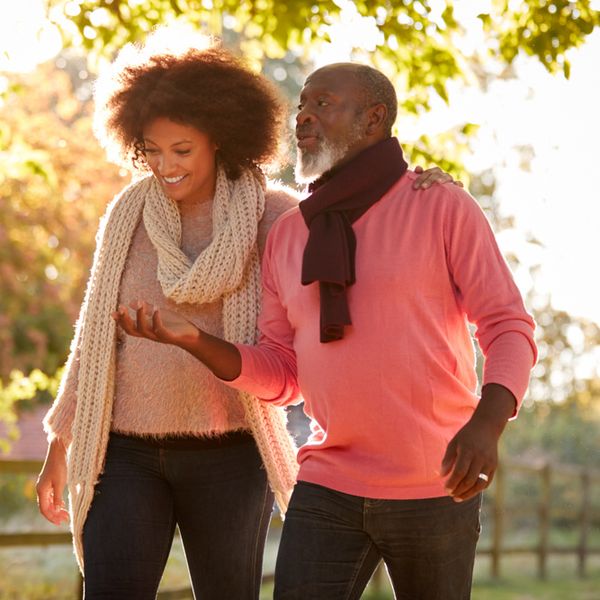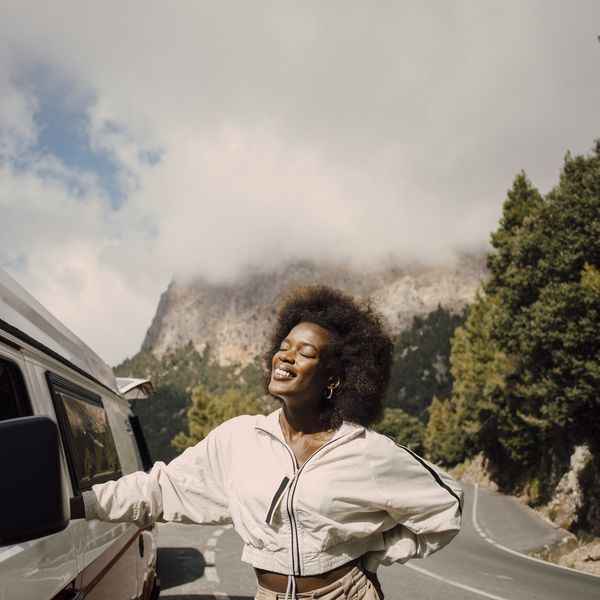I've never accepted the term "daddy issues". It has always rubbed me the wrong way because it automatically puts a permanent stain on a woman's forehead. It seems to provide a convenient excuse for any failed relationship where there's no apparent wrong-doing on the man's part, whether it's really the woman's fault or not.
In the past, I also wasn't into applauding men who were present for their children, either. It seemed weird to clap for fathers who did what they were supposed to do, after all, we don't do this for mothers. But I realize that part of my thinking could come from a place of mild resentment considering I didn't have the most ideal relationship with my father.
I must say that I'm now in awe of those same fathers. It's that fascination that made me tune into the OWN special They Call Me Dad earlier this month. The show put a spotlight on male celebrities who play an active role in their children's lives. Men like author and filmmaker, Bishop T.D. Jakes, gospel artist Kirk Franklin and musical entertainer and renowned DJ, Derrick "D-Nice" Jones, talked about their journeys from youth to fatherhood and demonstrated how they show up for their kids.
The men also made the distinction between father and dad––the latter being more than biological.
And their children, particularly their daughters, explained how they viewed their dads in their lives. Third-year law student Ashli Jones sees D-Nice as her advocate and real-life superhero while Woman Evolve founder Sarah Jakes Roberts sees Bishop Jakes as Liam Neeson's character in the movie Taken, traveling across the world battling bad men to save his baby if he had to. Both the dads and their children describe the paternal role as protector, guide, and provider.
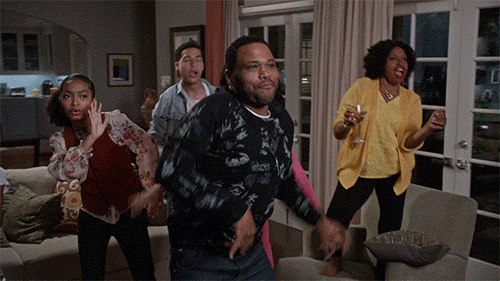
I grew up in a single-family home with my mom and I saw my father usually on Friday nights. He was my board game partner, popping the plastic bubble on hours of Trouble, and my card game teacher, showing me strategy on everything but Spades.
It took a few years to learn that this wasn't exactly normal and I'm not just referring to youth who live in two-parent households as normalcy. In fact, this was complicated. My father was actually married and lived a few miles from the home where I lived with my mom. Truthfully, I didn't really know him, know him because there was a huge part of his life that I was excluded from. This fact became more evident after my mom passed away and I moved to my grandparents' home two backyards, a road, and a front yard away from my father's house.
It's when I had to acknowledge that that's not a world I was part of. I wasn't exactly welcomed in his house, at least in the beginning. I didn't get to meet paternal family members when they came to town. I attended the same school as my cousins and we knew each other but the kinship was unspoken.
While I was born out of a less than ideal union, I don't accept fault but I still can't help but feel that some parts of me are incomplete and not accepted.
I'd never use the words "superhero", "protector", "guide" or "advocate" as the young ladies in the OWN special did. And while "provider" would be a fair descriptor, what does that really mean? As Bishop Jakes said, it's about the presence, not the presents. I couldn't even say I felt defended. That was another thing that became quite clear and turned an amicable relationship into a deteriorating one near and at his death. Many times I question why I even bothered to show up at all.
I'm not trying to judge, express guilt, or point any blame, though. I get that parents do the best they can at the moment. But the actions or inactions of absent parents do inadvertently put us in precarious positions and get used against us daughters in a demeaning way during adulthood, particularly in intimate relationships.
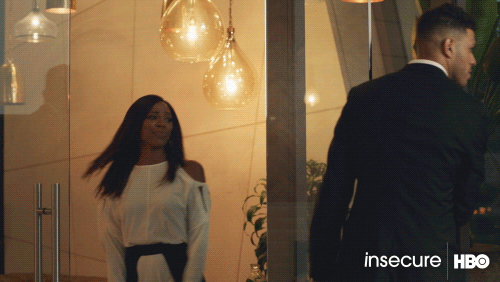
I repeatedly made poor decisions in men, specifically choosing those who were emotionally unavailable, which I talk about in a separate article. And I also had the habit of staying in those "situationships" long beyond their expiration dates. It's like I was determined to make them choose me back.
Hearing Kirk Franklin say that dads are the first men to teach women love and self-worth last week prompted me to just Google "daddy issues". It wasn't that I was owning the label or anything. But I was owning my failure in relationships. I'm at a place where I can write all day about them. I'm just leery of blanket diagnoses.
I already knew society would say, "Yep, sis, you have classic 'daddy issues'." Society would also assume that I'm attracted to older men, I call my partner 'daddy,' I'm clingy and jealous, I crave attention from men and I need reassurance of love and affection. It's the standard answer, more so than "mama's boy", which doesn't carry the same stigma. A quick Google search of "mama's boy" required me to scroll and click around before I found articles.
However, for my search, it really wasn't about the men. Ultimately, I still attracted and tolerated the wrong ones. Now I only wanted to dissect the term for my own benefit because I was curious and I want to open myself up to a healthy relationship.
I knew my intuition was on point––when I chose to listen to it, that is. What I found is that this so-called "daddy issues" rhetoric is stereotypical and sexist and it doesn't only apply to women.
Here's what I learned about it specifically:
1. The Term "Daddy Issues" Isn't A Disorder, It's Disrespectful
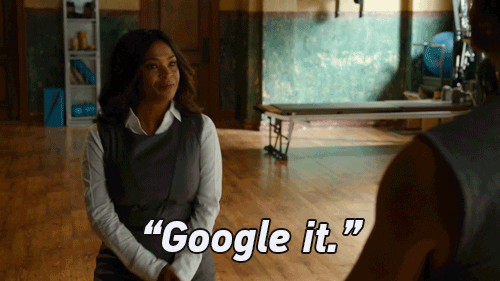
"Daddy issues" isn't even a condition or disorder listed in the Diagnostic and Statistical Manual of Mental Disorders (DSM-5). In fact, Houston-based psychotherapist Amy Rollo told Healthline that she and many other experts don't even believe in daddy issues and that they see the phrase as a way to minimize women's attachment needs. An article in MindBodyGreen goes a step further to say that it belittles a woman's relationship struggles. Quite frankly, it's lowkey disrespectful and the more appropriate way to tackle it is to recognize and understand one's attachment style, which is explained here and discussed here.
2. Daddy Issues Aren't Gender-Specific
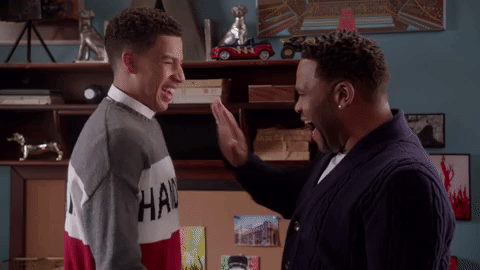
The first "daddy issue" originated between father and son. Psychoanalyst Sigmund Freud came up with the "father complex", which described "someone who has unconscious associations and impulses resulting from an individual's poor relationship with their father." Freud initially believed this father complex only affected men. The term didn't apply to women until later and then it stuck. And while modern-day attachment issues are almost always directed to father and daughter, they could actually be son and mother issues and grandparents can be added to the mix as well.
I can admit that I needed to do some internal work before I even considered entering a relationship. I would've repeated a toxic cycle indefinitely. I also can't argue that my relationship with my father didn't play a significant part in who I was attracted to. I gravitated towards whatever was familiar or whatever was wounded. That's also our way of changing the plots or endings to our ongoing narratives.
But misused and misunderstood labels like "daddy issues" are harmful. Women aren't the only gender trying to reconcile what we didn't get from absent parents to what we can't give or don't receive from our partners. Men do, too, all the time. A more helpful approach is to drop the "daddy issues" label and call it what it is.
Many of us, men and women alike, have difficulty forming healthy bonds with potential significant others. But with a little reflection and a whole lot of healing, we can all learn to form secure attachment styles, and perhaps then we'll finally find a true protector, defender, and real-life superhero in our partners.
Are you a member of our insiders squad? Join us in the xoTribe Members Community today!
Featured image by Shutterstock.
- From Miss Independent To 'Mrs' : Why These Adjustments Are ... ›
- LeToya Luckett Had To Forgive Her Father Before Finding True Love ›
- 6 Lessons I've Learned From My Daddy Issues - xoNecole: Women's ... ›
- 25 Valuable Life Lessons From Failed Relationships - xoNecole: Women's Interest, Love, Wellness, Beauty ›
- How To Deal With Daddy Issues By Healing Your Father Wound ... ›
- How to Heal Your "Daddy Issues" (and btw, men have them too) ›
- How did you learn to deal with your daddy issues? - Quora ›
- Daddy Issues Explained - Freud's PsychoSexual Developmental ... ›
- Relationships and Men With Daddy Issues | HuffPost UK Life ›
- We Asked Three Experts How to Deal with Daddy Issues ›
- Yes, 'Daddy Issues' Are a Real Thing — Here's How to Deal ›
Your December 2025 Monthly Horoscopes Are All About Surrender & Alignment
December is about letting go. We end the year with the need for more peace, reflection, and rejuvenation, and that is exactly what December is providing for us. The Sun is in Sagittarius, and anything is possible. This is the month to believe in that and to know that the universe is supporting you. With a Supermoon in Gemini as we begin the month as well, we have an opportunity to gain the closure we have been looking for this year and to wrap up old projects, ideas, and communication breakthroughs.
This is the month to make your peace the priority and let go of trying to control the way the tides are turning. Trust in your new beginning, and give yourself time to prepare for it this month.
A big part of the clarity that is coming through this month is due to Neptune going direct in Pisces on December 10, after being retrograde here since July. With Neptune now direct, we are able to see our inspiration and creativity a little more clearly, providing the perfect energy for dreams and manifestation to be built upon. The smoke is clearing, and it’s up to you to decide what you want to do with this newfound clarity that this transit is bringing. Mercury also moves back into Sagittarius on December 11, which is great for communication and clarity, and the adventures you were trying to see through at the beginning of November come around for you again with greater purpose and support.
On December 15, Mars enters Capricorn until the end of January 2026, and this is the extra push we need to make important changes and to be on the path towards greater abundance, stability, and prosperity. Mars in Capricorn takes care of business, and we have extra energy at our disposal during this time to do so. This transit is an ideal time to focus on your career or financial goals for next year and to start putting some of these plans into motion now. A few days later, we have the New Moon of the month, which will be in Sagittarius on December 19, and this is the perfect New Moon to manifest.
The energy is high, magic is in the air, and it’s all about moving forward with the new beginnings that are inspiring you and bringing you joy to think about right now.
Capricorn Season officially begins on December 21, and this earth sign energy is how we heal, gain closure, and build new foundations in our world. With Venus also moving into a Capricorn a few days later, there is something about peace, prosperity, and security that we are gaining in life and in love as we close out the year, and this is what we need right now. This month is about reflecting on what was, letting go of old hurt, and renewing. December is an ending and a new beginning in one, and there is magic in this space to be created.
Read for your sun and rising sign below to see what December 2025 has in store for you.
 AriesKyra Jay for xoNecole
AriesKyra Jay for xoNecoleARIES
December is a full-circle moment for you, Aries. You are seeing the gifts in your world and have a lot of gratitude for the way things have come about for you as of late. There are culminations in your world that are providing you with more abundance, stability, and community, and you are exactly where you are meant to be this month. With the Sun in a fellow fire sign and in your 9th house of travel for most of the month, December is a good time to get out of your comfort zone, explore the world around you, and get your body moving.
Mars, your ruling planet, also makes a change and moves into Capricorn on December 15, which will fuel your inspiration and power in your career space. You are making a lot of professional progress as we close out the year; however, make sure to be more mindful of your competitive drive right now. The New Moon on December 19 is the perfect opportunity for you to create some new plans and goals when it comes to traveling, education, and where you want to gain some new inspiration in your world. Overall, this is a month of things coming together for you serendipitously.
 TaurusKyra Jay for xoNecole
TaurusKyra Jay for xoNecoleTAURUS
December is about trusting your intuition, Taurus. You have a lot on your mind this month, and it’s best to delegate, communicate, and allow yourself some relief by opening up to someone and not feeling like you have to hold everything in. As we begin the month, we have a Supermoon in Gemini happening in your house of income, and the plans and projects you have been building here come to fruition for you now. This is the time to gain clarity on your financial world and to take a look at what spending habits you want to let go of here as well.
With Venus in your 8th house of shared resources for most of the month, you are doing a cleanse on your commitments, partnerships, and business ventures. You are taking a look at what you want to dedicate yourself to in the future, and what commitments you may need to let go of now in order to be in the space you truly want to be, both financially and within some of your relationship dynamics. Before we end the month, we have a New Moon in this same area of your chart, and it’s time to look at the opportunities that are presenting themselves and to trust your internal guidance system to lead you forward.
 GeminiKyra Jay for xoNecole
GeminiKyra Jay for xoNecoleGEMINI
You are moving forward fearlessly this month, Gemini. December is your month of love, passion, and dignity, and you are owning the light that you shine. We begin the month with the last Supermoon of the year, happening in your sign, and you are stepping up to the plate. You are showing up, owning how much you have grown this year, and allowing yourself to heal while also acknowledging that you have done your best and you deserve to have fun in the midst of the changes you are creating.
Mercury, your ruling planet, is officially out of retrograde, and you can use this energy to the fullest potential now. With Mercury in your 7th house of love, it’s time to speak from the heart and to talk about the things that matter and that are inspiring you right now to your loved ones. You never know what kind of epiphanies you may have when you open up the conversation to others. Before the month ends, you have a New Moon in this same love area of your chart, and this New Moon is all about manifesting romance, commitment, and abundance in your world.
 CancerKyra Jay for xoNecole
CancerKyra Jay for xoNecoleCANCER
December is an opening for more love, more joy, and more freedom in your life, Cancer. You have come to a place where you hold so much gratitude in your heart for where you are today and where your heart is shining, and things come together for you with more ease right now. With the Sun in your 6th house of health, work, and daily routines for most of the month, you are getting your ducks in a row while also putting more energy and effort into taking care of yourself, your priorities, and your well-being. This month surprises you in many ways, and it’s because you are showing up.
Mars and Venus both move into your house of love, relationships, marriage, and abundance this month, and you are making strides in your love life. You have both of these opposing forces on your side and are being recognized for the love you are while also receiving the love you want. This month, overall, is about focusing more on the positives in your world and letting your heart have its joy. Before December comes to an end, there is a New Moon in Sagittarius, and this is the perfect opportunity to create the plans you want to see through next year, especially when it comes to your work life, colleagues, business ventures, and health.
 LeoKyra Jay for xoNecole
LeoKyra Jay for xoNecoleLEO
The scales of karma are balancing, and they are balancing in your favor this month, Leo. December is your month of truth, and of seeing it clearly in your world. The Sun is in your house of romance, pleasure, and happiness for most of the month, and it’s time to relax, be in the present moment, and allow what is meant to be, to be. With a Supermoon in your 11th house of manifestation as December begins, this is a powerful month for seeing your dreams come to fruition, and for feeling like the intentions you have set this year are finally here for you now.
Mars also moves into your 6th house mid-month, and this is the perfect energy to have to move into the new year. You have extra energy at your disposal right now and are feeling fearless with what is possible for you and your daily routine. Before the month ends, we also have a New Moon in a fellow fire sign, Sagittarius, and this is a breakthrough moment for you and your heart. December, overall, wants to show you how loved and supported you are and will be doing so in magical, unexpected, and concrete ways.
 VirgoKyra Jay for xoNecole
VirgoKyra Jay for xoNecoleVIRGO
December is a month of victory, Virgo. You are showing up and experiencing some new successes in your world that move you forward on your path in life. With a Supermoon in your 10th house of career as we begin the month, the effort and intentions you have made this year come into full bloom, and you are being recognized for who you are and the good work you have done. This month is all about showing up and allowing yourself to be seen and loved, knowing that you deserve the support and opportunities you are receiving.
Mars moves into Capricorn on December 15, which brings the passion and excitement into your love life, hobbies, and little pleasures in life that light you up. You want to have fun this month and are going to be walking into the new year with this fearless, happy, and spontaneous energy within you. Before the month ends, Venus also enters Capricorn, and in this same area of your chart, you have a lot to look forward to and believe in right now. Overall, December wants you to be happy and will be doing everything possible to make that happen for you. This is your month to shine, Virgo.
 LibraKyra Jay for xoNecole
LibraKyra Jay for xoNecoleLIBRA
December is a month of opportunity for you, Libra. New doors open, and you are financially making breakthroughs this month because of it. December begins with a Supermoon in your 9th house, and you are getting a clearer view of where you have been making strides in your life and how it has all brought you here to this present moment of freedom. This month is showing you what happens when you are fearless with your purpose and when you believe in yourself and what you are worthy of.
Moving further into December, Mars moves into your 4th house of home and family mid-month, and you are closing out the year in your safe spaces. You are spending more time with your loved ones and taking the time to quiet your mind and listen to what your heart has been telling you. Before the month ends, we have a New Moon in Sagittarius, happening in an area of your life that deals with communication. This is a great time for getting the answers you have been looking for and for feeling more clear-headed and confident about the decisions you are making as you move into the new year.
 ScorpioKyra Jay for xoNecole
ScorpioKyra Jay for xoNecoleSCORPIO
Patience is a virtue this month, Scorpio. December is all about remaining patient and vigilant with what you are creating in your world, and knowing that the universe has your back. It’s time to be reminded of the power of hope, and this month is an opening to greater clarity in your life. There is a lot of energy in your financial zones right now, and this is providing you with new opportunities and new insight; however, the speed at which things come about for you may feel daunting. Keep your head up and eyes focused on what you want and know that you are more than worthy of receiving it.
With Mercury in your 2nd house of income this month, December is a good time to plant new seeds and to think about where you want to be financially a month from now or even a year. This month is asking you to think bigger and to think more long-term so that you can set the appropriate plans into motion now. We also have a New Moon in your house of income before the month ends, and this is when you will see more of your dreams come to fruition in this area of your life, and have more opportunities to build. Overall, December will be teaching you a lot, Scorpio.
 SagittariusKyra Jay for xoNecole
SagittariusKyra Jay for xoNecoleSAGITTARIUS
Sagittarius Season is here, and there is a lot in store for you this month, Sag. December is all about what you are dedicating yourself to. It’s about setting your intentions and putting the work in to back up your dreams, and about getting things in order so that when the new beginnings come, you are ready for them. The Sun and Venus are in your sign for most of this month, and there are a lot of eyes on you right now. You have the potential to create a new beginning for yourself, and it’s time to invest in yourself, your love life, and your dreams.
Mercury moves into Sagittarius on December 11, and this is giving you another opportunity to see through some of the plans that you had initiated in November. Mercury was retrograde in your sign last month, and there may have been some disruptions to your vision and plans for the future, and now this energy is turning around for you. Before the month ends, we also have a New Moon in Sagittarius, and you are walking through new doors fearlessly. You are catching others by surprise by your growth this month, and you are thinking a lot about your purpose, future, and plans for the new year.
 CapricornKyra Jay for xoNecole
CapricornKyra Jay for xoNecoleCAPRICORN
December is all about the vision, Capricorn. You are moving through a lot of changes and transformations this month, yet they are giving you a chance at a new beginning in the process. You are focused more on the future and what goals you want to manifest for yourself right now, and are ready to let go of what hasn’t been working for you. With the Sun in your 12th house of closure for most of December, this is your time for healing, but remember, healing doesn’t have to be isolating or boring; you can thrive while you renew, and you are this month.
Mid-month, the excitement picks up for you, and you are feeling more energized than you have in a while. Mars moves into Capricorn until the end of January 2026, and you are being proactive with your goals, intentions, and passions. You are a force to be reckoned with this month, and you are making things happen for yourself with confidence. Capricorn Season officially begins on December 21 this year, and this is definitely speeding up your healing process. You are breaking free from what was, and with Venus also moving into Capricorn before the month ends, you are leaving this year in high spirits and with love opening a new door for you.
 AquariusKyra Jay for xoNecole
AquariusKyra Jay for xoNecoleAQUARIUS
December is all about community, creativity, and manifestation, Aquarius. This is the month to work together with others to help bring your dreams to life. You are in a space of inspiration, empowerment, and beauty, and are creating more of this energy around you and in your world. Look out for what support comes your way this month and know that you don’t have to do everything alone to succeed. With the Sun in your 11th house of manifestation and friendship, your intentions are coming to fruition, and it’s time to celebrate with the people you love and to own how far you have come this year.
On December 19, we have a New Moon in Sagittarius, lighting up your life in all of the best ways possible. This is your New Moon of freedom, victory, and magic, and you are seeing new beginnings appear that you were once just hoping for. Before the month comes to an end, Venus moves into your 12th house of closure, and after an active and successful month, you are ready to relax, heal, and give your heart some of the attention it has been asking for. You are moving into the new year with the need to release and renew what hasn’t been working in your relationships, and you are finally ready to.
 PiscesKyra Jay for xoNecole
PiscesKyra Jay for xoNecolePISCES
December is a big month for you, Pisces. You are making some huge accomplishments this month, and are feeling like everything you have been through this year has been worth it for these moments that are coming to fruition for you now. The Sun is in your 10th house of career and reputation for most of the month, and this is where a lot of your focus is right now. You are claiming your successes and putting yourself out there in ways that not only serve you, but that inspire others as well.
Neptune officially goes direct on December 10, after being retrograde in your sign since July, and you are finally seeing things a little more clearly. You are feeling renewed inspiration and passion in your life, and your intuition is your strongest asset right now. Before December comes to an end, we also have a New Moon in your 10th house of career, and what happens now not only changes things for you in the present, but it also opens new doors and what is possible for you in the new year as well. Overall, you are on top of your game this month and are owning the joy and empowerment you feel.
Featured image by Kyra Jay for xoNecole
Don Benjamin On New Projects, Family & How He And His Wife Healed After Public Split
Actor and model Don Benjamin continues to expand in his career while also being a present husband and father. We first learned of the model in 2013, competing on America's Next Top Model Cycle 20, and now he's starring in major films like the recent Jordan Peele movie HIM and Adopted 2.
He was even the leading man in Cardi B's latest music video "Safe," which also features Kehlani. In an exclusive xoNecole interview, Don opens up about his family and this phase in his life.
"Honestly, the funny thing is, it's just like any other phase," he admits. "I just focus on work and growth and leveling up. I'm super excited about this moment because now, I'm finally tapping more into my acting side of stuff." He also shows off his acting skills on social media. Don, along with his wife, Liane V, often shares cute family skits on their respective Instagram and TikTok pages.
The couple share two kids, 2-year-old daughter Zaia Sky and Zaiden, who they had in June 2025. According to Don, Zaia is already following in his footsteps. "She's already doing more modeling jobs than me as of lately, and we want to get her in some acting. She loves the camera," he says. "It'll be nice to see if she follows in my footsteps, and I can kind of help line some things up for her."
Don and Liane have been married for four years, but had a very public breakup the year before. The Scared Famous star reveals how they did the work to heal and move forward together.
"We had our time to separate and work on self-growth, things that I needed to do for myself as a man, and working with life coaches and therapists, and she got the time to do what she needed to do. So when we came back together, we were in the right space mentally. We got a relationship coach that we can go through things with and talk about and work on and these things were important for us. Now, over the years, I feel like that actually helped us come closer together. That moment helped us come closer together."
"We had our time to separate and work on self growth, things that I needed to do for myself as a man, and working with life coaches and therapists, and she got the time to do what she needed to do. So when we came back together, we were in the right space mentally."
He continues, "I did what I had to do to understand [that] as a man, I never really had any male guidance in my life. So it was able to align me with the right coaches and pastors and therapists and people that I needed to align with to work on things that I had been dealing with in life. Then she got the space that she needed as a woman to work on her independence.
"We came back together strong, and now we were able to get married in the right space. A lot of times, people jump into marriage when they're not fully healed or in the right headspace. So we were able to get married in that right space. For us, it's been a beautiful thing, and we're able to use that as as an example."
Don also believes it's important to set an example for their kids, especially when it comes to love and respect. While the actor grew up without his dad, he has made it his priority to instill love in his kids by showing up for them and giving them words of affirmations.
As far as what's next for Don, he is starring and executive producing a paranormal activity film titled, holySmoke. "I'm loving the drama and horror space right now," he says.
"I always love a good romantic comedy, but right now. I seem to be getting reeled into all these horror films and thrillers and dramas."
Let’s make things inbox official! Sign up for the xoNecole newsletter for love, wellness, career, and exclusive content delivered straight to your inbox.
Feature image Nikita Melvil



